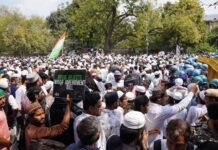The pro-Palestinian Holocaust survivor Hedy Epstein has died at her home in St. Louis, USA, at the age of 91.
During her later years, her efforts centered on campaigns to end the Israeli occupation of Palestine. She founded the St. Louis chapter of Women in Black and co-founded the St. Louis Palestine Solidarity Committee and the St. Louis chapter of Jewish Voice for Peace.
She traveled to the West Bank several times, first as a volunteer with the International Solidarity Movement and repeatedly as a witness to advocate for Palestinian human rights.
She attempted several times to go to Gaza as a passenger with the Freedom Flotilla, including as a passenger on the Audacity of Hope, and once with the Gaza Freedom March.
Hedy addressed numerous groups and organizations throughout Europe and returned to Germany and her native village of Kippenheim many times.
Born August 15, 1924, in the Bavarian region of Germany, her lifelong commitment to human rights was formed by the horrific experiences she and her family endured under the repressive Nazi regime.
Unable to secure travel documents for themselves, Hedy’s parents, Hugo and Ella (Eichel) Wachenheimer, arranged for 14-year-old Hedy to leave Germany on a Kindertransport. Hedy credited her parents with giving her life a second time when they sent her to England to live with kind-hearted strangers. Hedy’s parents, grandparents, and most of her aunts, uncles and cousins did not survive the Holocaust.
Subscribe to our newsletter and stay updated on the latest news and updates from around the Muslim world!
Hedy immigrated to the United States in 1948. She and her husband moved to St. Louis in the early 1960s, and shortly thereafter Hedy began working as a volunteer with the Freedom of Residence, Greater St. Louis Committee, a nonprofit organization dedicated to housing integration and advocacy for fair housing laws.
As an advocate for equality and human rights, Hedy spoke out against the war in Vietnam, the bombing of Cambodia, and overly restrictive U.S. immigration policies. She spoke and acted in support of the Haitian boat people and women’s reproductive rights, and, following the 1982 massacre at Sabra and Shatila, Hedy began her courageous and visionary work for peace and justice in Israel and Palestine.
Hedy often shared her philosophy of service with these words: “If we don’t try to make a difference, if we don’t speak up, if we don’t try to right the wrong that we see, we become complicit. I don’t want to be guilty of not trying my best to make a difference.”






















